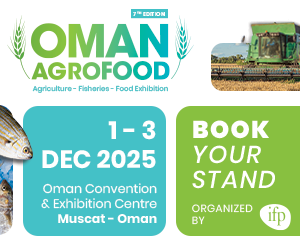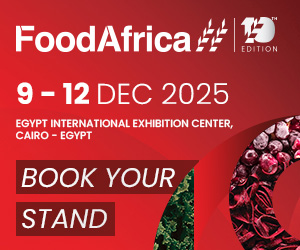The global ethical food market is projected to reach USD 130.3 billion by 2025, and expand at a CAGR of 9.4%, ultimately hitting USD 292.6 billion by 2034.
This robust growth is driven by rising consumer awareness around sustainability, fair trade, animal welfare, and ethical labor practices. The ethical food category spans a diverse range of products including organic, cruelty-free, fair-trade certified, plant-based, and locally sourced items. Increasing demand for transparency in food sourcing has led to more stringent labeling and production standards, reinforcing ethical compliance throughout the supply chain.
Environmental concerns, particularly around climate change, are also shaping the industry. Many companies are embracing carbon-neutral operations and eco-friendly packaging to meet evolving expectations. As ethical consumption becomes a mainstream priority, brands are increasingly turning to responsible sourcing, regenerative agriculture, and improved labor standards to maintain customer trust and loyalty.
2024 Momentum: Innovation and Policy Drive Change
In 2024, the ethical food sector gained further momentum, spurred by innovation, regulatory action, and shifting consumer values. Major brands and retailers expanded their offerings of plant-based, organic, and fair-trade products in response to growing market demand. Governments globally introduced tougher rules on ethical sourcing and supply chain accountability, pushing companies to adopt more transparent practices.
Regenerative agriculture also gained prominence, with companies investing in biodiversity and soil health to reduce environmental impact. Technologies such as blockchain and AI have improved traceability, allowing consumers to verify the ethical credentials of food products. Dedicated “ethical food” sections in retail outlets and online platforms have further boosted visibility and access for conscious consumers. What was once a niche market is now becoming a global movement.
Future Outlook: Innovation and Accountability Redefining the Sector
Looking ahead to 2025 and beyond, the ethical food landscape is set for significant transformation. Emerging technologies like cellular agriculture and precision fermentation will open new avenues for sustainable protein production, reducing reliance on traditional animal farming.
The introduction of carbon labeling on food packaging will empower consumers to choose products with lower environmental footprints, while AI-powered sustainability tools will help companies minimize waste and enhance supply chain efficiency.
As corporate and governmental sustainability goals become more ambitious, ethical food production is expected to evolve into a central pillar of the global food economy.
Key Trends Shaping the Ethical Food Market
Rise of Regenerative Agriculture: A focus on soil health, carbon sequestration, and ecosystem restoration is driving long-term sustainability.
Growth in Plant-Based and Alternative Proteins: Lab-grown meat and fermentation-based proteins are reducing the environmental burden of food production.
Blockchain for Supply Chain Integrity: Technology ensures traceability and validates ethical claims.
Carbon Footprint Labeling: Companies are adding emissions data to packaging, enabling informed consumer choices.
Expansion of Ethical Retail Channels: Direct-to-consumer platforms and ethical online retailers are improving accessibility and transparency.
Major Market Drivers
Ethical Consumerism: Increasing consumer demand for cruelty-free, fair-trade, and environmentally responsible products.
Regulatory Pressure: Governments are mandating sustainability, ethical labor practices, and reduced emissions in food production.
Corporate Sustainability Commitments: Global brands are setting clear targets for ethical sourcing and packaging.
Technological Innovation: Advances in sustainable food tech, such as cellular agriculture and AI, are enabling scalable ethical food production.
Source: GlobeNewswire.com




















































































